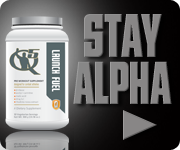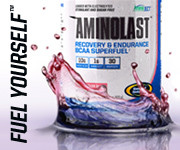We all age, and all of us who are passionate about the sport and art of Brazilian Jiu-Jitsu will eventually reach a point in time when we ask, “Is it worth it for me to continue training?”
Though it is referred to as the gentle art, BJJ can take a toll on the body because fundamentally, training involves contorting the body into extraordinary positions and then twisting and hyper-extending joints.
 For many older BJJ players, gone are the days of rolling for two hours a day five days a week with no residual stiffness and soreness. When I say older I don’t necessarily mean age in years, but rather “physiologic age”. You physiologic age may be older or younger than your actual age and is influenced by genetics, nutrition, exercise, and the accumulated damage your body may have suffered from years of sports or work.
For many older BJJ players, gone are the days of rolling for two hours a day five days a week with no residual stiffness and soreness. When I say older I don’t necessarily mean age in years, but rather “physiologic age”. You physiologic age may be older or younger than your actual age and is influenced by genetics, nutrition, exercise, and the accumulated damage your body may have suffered from years of sports or work.
A universal truth when it comes to any orthopedic condition is that eventually the rate of wear will exceed the rate of repair in our bodies. This is when we begin to feel the symptoms of physiologic age – stiffness and limited ranges of motion in joints, and reduced flexibility and tightness in the muscles and connective tissues. The age we start to feel these symptoms varies for each one of us, however I will say from my experience in practicing chiropractic and physical therapy is that most people begin to feel the effects of physiologic age as they reach their early to mid-30s.
So how do we maintain longevity in this sport we love? First we must recognize that our journey through BJJ is like our journey through life, which involves different stages with change being the only constant.
Altering our training methods, frequency and duration of training sessions, and adding strength training, yoga, cardio work, and other activities can help. Our bodies are all different, so each one of us must figure out through experimentation what works for us. We also need to pay close attention to how we are feeling both physically and emotionally. A training log can really help with this.
Proper nutrition is a must. A healthy and balanced diet will accelerate your body’s natural healing process. Good nutritional habits are like studying BJJ in that there is no short cut to good health. It does not come in a pill. Supplements can help, but our day to day decisions about what to eat make the difference. We can’t improve our BJJ skills without putting time in on the mat, and we can’t expect good health without leading a healthy lifestyle.
Manual therapy in the form of massage, chiropractic care and physical therapy are also essential. For one thing, it feels great to have your joints mobilized, your tight muscles elongated, and the soft tissues kneaded and loosened. With increased physiologic age our tissues lose elasticity and the cartilage breaks down in our joints, which is why outside assistance is necessary.
Our bodies need regular maintenance just like our cars. We take our cars in for regular oil changes and tune ups so they run efficiently and problem-free. Our bodies are “machines” as well, and the harder we work them while studying BJJ, the more important it is to do frequent tune-ups. An appointment with a good chiropractor, massage therapist or physical therapist once or twice a month will enhance your body’s ability to heal itself and help minimize physiologic aging.
I am now 38, and five years into my BJJ journey. I am just beginning to see what lies ahead. I am just beginning to “get it” and want to continue to learn, expand my knowledge, and improve my skills on the mat. However, my physiologic age has started to show and I am constantly reminded that I can’t do now what I could at 25 without feeling the effects.
I’m not as flexible as I used to be and I have a laundry list of injuries including a partially torn rotator cuff, disc degeneration in my neck and a partially torn meniscus in my knee. Despite this, I know that BJJ will be in my life for a long time to come. In future issues I will provide information to all my fellow BJJ enthusiasts regarding how to limit the effects of physiologic aging and keep training for a lifetime.
Happy training and be safe on the mats!
Dr. John Park
Dr. Park is the founder of Progressive Spinal and Sports Rehabilitation. Dr. Park has extensive knowledge in treating sports-related injuries. He has been featured in Men's Fitness Magazine and has lectured on topics related to ergonomics, exercise, health, and fitness. You can find out more here:





